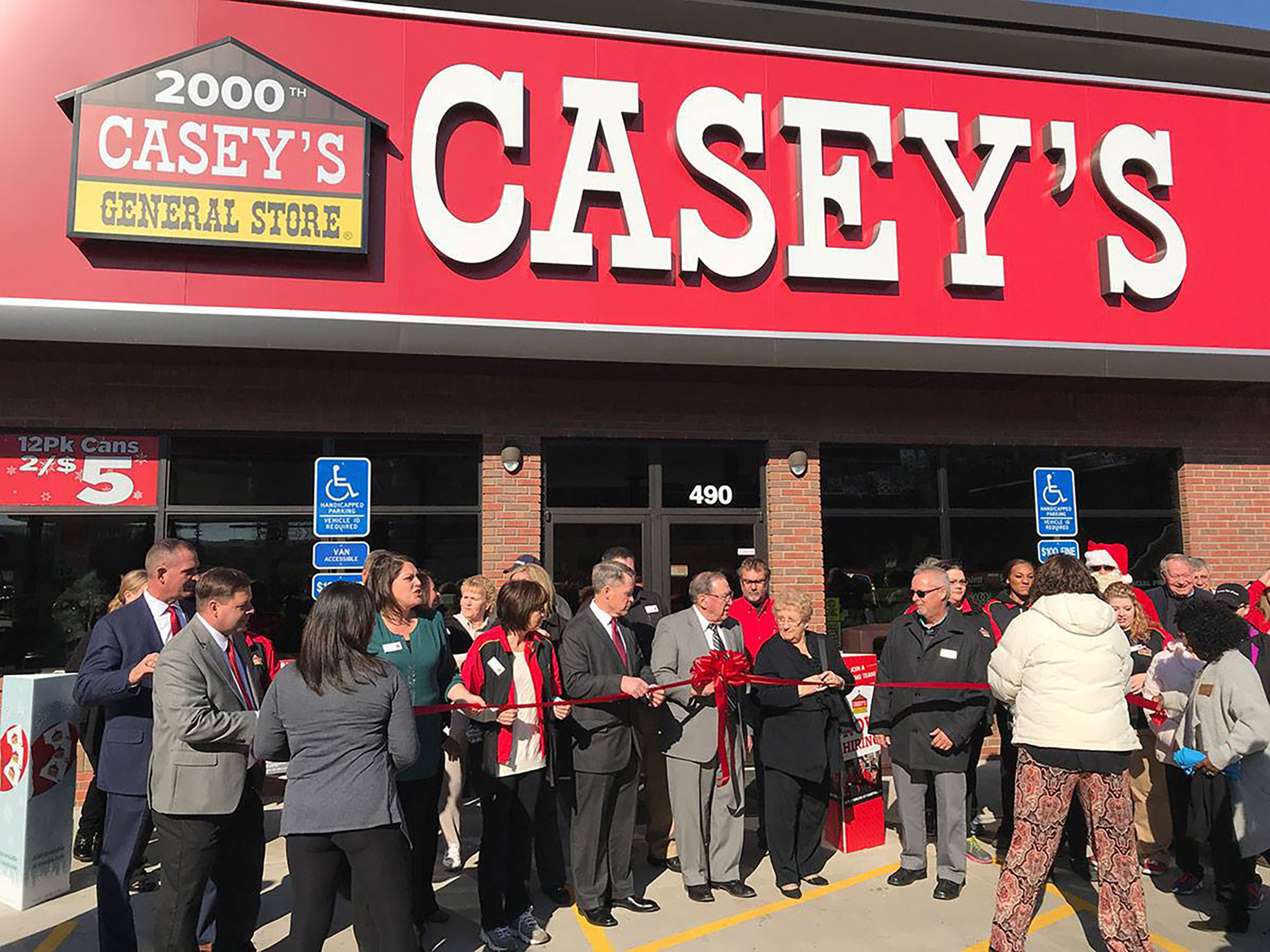Casey’s General Stores has made a name for itself in small towns across the Midwest. Its convenience stores are a popular stop for gas and food, including freshly made pizzas, sandwiches and donuts.
Casey’s, which operates roughly 2,100 convenience stores across 16 states, is the fourth largest convenience-store chain and the fifth largest pizza chain in the U.S., according to the company website. But this $4.6 billion publicly traded company has some relatively humble origins.
Founder Don Lamberti opened his first store in Des Moines, Iowa, in 1959. Nearly a decade later he bought a gas station and a three-bay service garage, in the nearby town of Boone, with the idea of adding on a retail component. This makes Lamberti one of the pioneers of the American filling-station-and-convenience-store business, which now generates nearly $400 billion in annual revenues, according to IBISWorld.
Part of Ankeny, Iowa–based Casey’s success may be attributed to the simple strategy of sticking close to its small-town roots. Nearly 60 percent of its stores operate in towns with populations of fewer than 5,000. The company understood from the start that its business model focused on familiarity with its local customers, and that a presence in larger towns inevitably meant more competition. In fact, the portion of the company's stores located in towns with populations greater than 20,000 is less than 20 percent.

Casey’s has a new president and CEO: Darren Rebelez, who joined the company in June as successor to Terry Handley, who is retiring after nearly four decades. “I know Darren personally, and I'm familiar with his tremendous leadership experience in the convenience-store, fuel and restaurant industries, most recently as the president of IHOP,” said Handley during the company's fourth-quarter earnings call.
Among the tasks ahead for Rebelez will be sustaining the multiyear value-creation plan the company introduced last year. A key component of that plan is managing the digital platforms designed to enhance customer experience, to optimize pricing and to boost cross-promotion. Casey’s updated website streamlines the ordering-and-checkout process and enables online payment. Beyond that, a mobile app was introduced in June, and a customer-loyalty program is on track for launch by early fall.
Casey’s has an active store-expansion strategy in place. During fiscal 2019 (ended April 30) the company opened 56 stores, acquired 24 and has eight more currently under purchase agreement. Casey's kicked off the new fiscal year with about 80 stores in the pipeline, roughly half of which are under construction.
“As we move into new communities, we make sure that we aren't just a retailer from the state of Iowa”
Growing the store base has involved stepping into new states: Arkansas, Kentucky, Oklahoma and Tennessee. Casey’s is working hard to make sure the customers in these new markets can see the value the company brings not just in terms of its wares, but also in social value to the community, according to CFO Bill Walljasper. Casey’s supports a variety of charities and similar initiatives at both the national and local levels. One example is the monthlong program the company set up in February, through which customers rounded up their cash-register purchases to the nearest dollar, with the proceeds going directly to the Children’s Miracle Network. That initiative raised nearly $2.4 million.
“As we move into new communities, we make sure that we aren't just a retailer from the state of Iowa," said Walljasper. "We are a part of that [new] community."
By Beth Mattson-Teig
Contributor, Commerce + Communities Today


